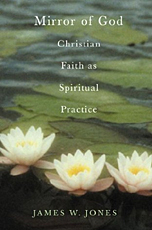"I know this is a very controversial claim: that Christianity should be more centered on practice and experience than on belief. For much of its history Western Christianity has been centered around having the correct belief. The criteria for whether one is, or is not, a Christian have usually involved accepting certain dogmas or believing certain claims, such as 'Jesus is the Messiah.' Much religious energy from the medieval philosophers through the reformation theologians to contemporary religious thinkers has been expended on defining, clarifying, and often defending the correct set of beliefs.
"But there is another stream of Christianity, neglected in the modern world, which does not focus primarily on belief. This tradition, going back to the earliest theologians of the Christian Church, attends more to religious practices, and the experiences of oneself and God that arise from them, than to beliefs.
"Recently, I have been reading some of these very early Christian writers on spirituality — from the first few Christian centuries — and one of the things that struck me was how psychological in a certain sense they were. They make the site of redemption the individual's interior struggle with themselves. They provide meditation techniques to help quiet the mind. For example, the Christian seeker is told to repeat the 'Jesus Prayer' ('Lord Jesus Christ, have mercy upon me') in time with her breathing and the beating of her heart. The 'heart' in these texts refers not only to the physical organ or to the seat of the emotions, but also to a part of ourselves that is deeper than our thoughts and feelings. For these early Christian writers, the 'heart' is our spiritual center, the 'image of God' within us, the inner sanctuary wherein the meeting of the self and its divine source is consummated. Through such a practice of repeating the phrase 'Lord Jesus Christ, have mercy upon me,' this 'Jesus Prayer' is said to 'take up residence' in the heart, that is, in the center of our life. These spiritual masters often call this practice 'a prayer of the heart' which means a prayer of the whole person, encompassing our thoughts and feelings and even our bodies.
"One goal of such practices is called 'watchfulness,' which might be translated as attentiveness or alertness. Buddhists call it 'mindfulness.' It means entering the interior place of tranquility. Watchfulness 'is the heart's stillness . . . free from mental images . . . unbroken by any thought,' as one early Christian teacher put it. Here we become aware of something about ourselves that we cannot learn in any other way — that there is a place of peacefulness within."
